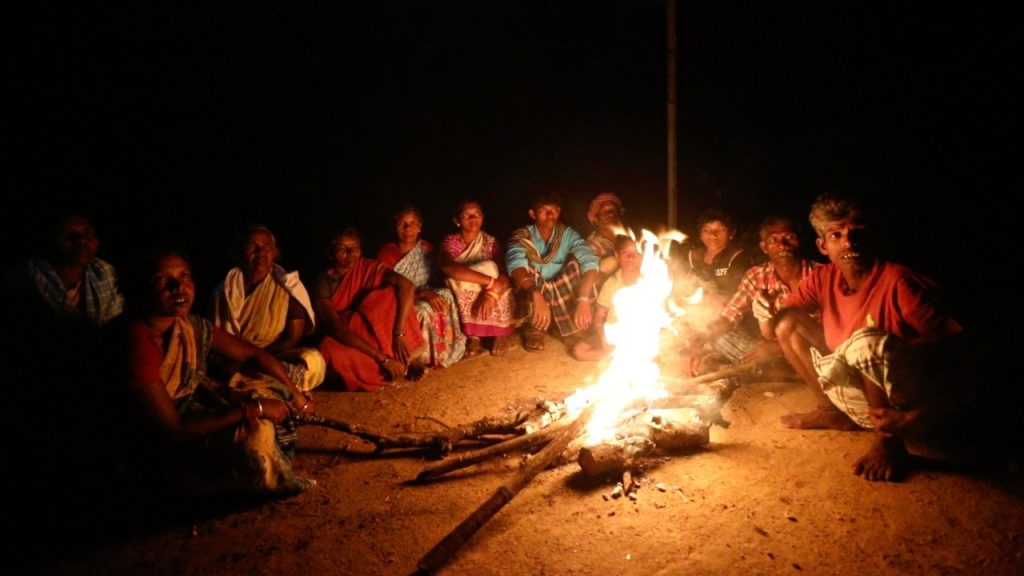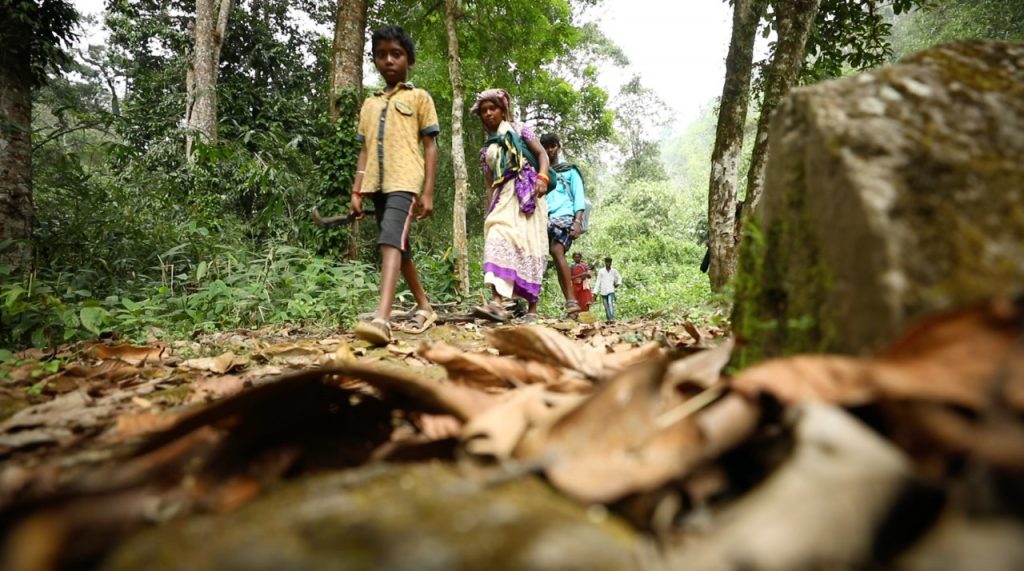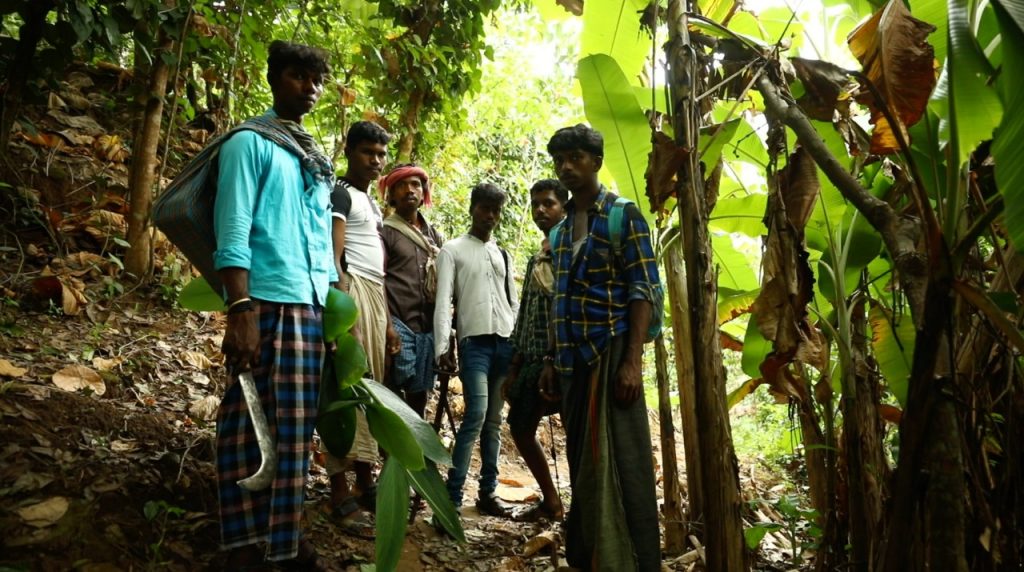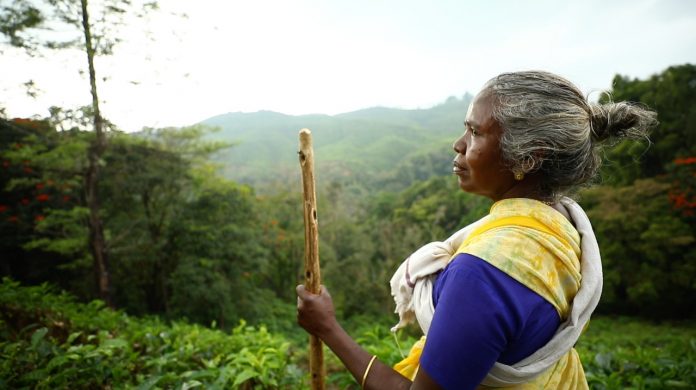Tamil Nadu has less than 1 per cent tribal population. The villagers of Kallar question if they have been neglected because their community has minimal vote share during elections.
By Suwathy V, TwoCircles.net
Coimbatore: Rajalakshmi, a middle-aged lady, and her husband have to walk several miles from their home to their farm in Kallar in the south Indian state of Tamil Nadu. Kallar is a village settlement located in the famed Anaimalai hills, which are also known as Elephant mountains, of Tamil Nadu. The settlement is populated by tribals.
The couple has to walk a distance of roughly 10 kilometres through the muddled streets and into the woods to arrive at where they would cultivate. Today is their turn. As is the practice, they have to check the entire 23 families’ range, and while doing so face the risk of being attacked by wild animals like elephants. It is a daily practice of tribal clans in the Kallar settlement. The 23 families share their daily chores and it’s been like a cycle from 2019. However, for over a year now, the clans are not content with their everyday errands.
The tribals staying in Anaimalai are the Kaadar, Malasar, Eravalar, Muduvar, and Pulaiyar. Kaadar’s are the most primitive clans of the Anamalai hills. They are nomadic tribes and constantly shift from their places. After the public authorities ordered for possessing a land license, they quit wandering and decided to have their habitat and livelihood in one place.
There are six Kadar settlements situated in deep woods that the government has announced as sanctuaries. They are known as Nedungundram, Udumanpaarai, Eathakuzhy, Erumaipaarai, Kallar, and Kavarkal. Kallar settlement is around 7 kilometres from Vazhparai town and comprises of 23 families. They develop pepper plants on their farm, which is their primitive source of income. Occasionally, they proceed to get nectar from the deep forest and sell it. They plant fruits and veggies on their ranch for their regular use.

Since 2017, the village Kallar has faced continuous landslides.
The home the locals reside is old and dilapidated. I found a lucent light hanging in the room, their only means for electricity. One needs to bend down to walk in and out. The age-old concrete sheet with damaged walls revealed red soil from the wall. The house is very crammed. When asked about the facilities in the settlement, they say that the government has allocated only 6 houses for 23 families. “We don’t have enough space to keep our belongings, not even enough space to sleep,” they say. Nearly, 10-15 individuals occupy a 10×10 room. During rains, the water spills into the house.
Recalling the trouble the families faced during a storm, a man Kanagaraj says, “It was a heavy storm. Everyone including kids and ladies was anxious. Temporarily, we constructed a hovel in a safe place. The very next day forest officials removed the hut without our knowledge. Then we went back to our place. We knew the danger but we didn’t have a choice.”
The people are longing to move into the forest.
After considerable silence, Veerappan, Rajalakshmi’s father, opened up to narrate an incident. Anticipating the disaster, they gave a petition to the forest department beforehand. And they said they had known that the rainfall was higher than the one in 2019.

“To defend ourselves, we switched to the other place where our ancestors lived and made temporary huts to save our lives. The forest department ordered us to evacuate the place. They asked us to move to the estate temporarily. We agreed but they never treated us like humans. They started to remove the huts while we were eating,” says Veerappan.
Upon insistence from the forest department, they agreed to stay in a camp at the estate. But nothing changed. As months passed, they got frustrated about losing their homeland. Despite the fact that the tribals have all the rights as per the Forest Rights Act, the forest department is trying to relocate them to the plains by referring to the Wildlife Protection Act. “But the tribes have all legal rights to live in the forest,” they say.
The tribes began to worry.
“We had no issues with forest officials. We have no clue about why they should treat us like this. The Forest Department will question us even if a doctor visits our place. If it is a forest, we need to seek permission but they restrict everything,” they say.
The tribes complain that those living on the Kerala border are faring better.
“They have decent road facilities, electricity, and a solid house. The government there implemented the project once the law passed but we got nothing, not even a right to live in our place,” said Narayanan, the village head.

The people of this village remember the word uttered by forest officers years ago when they refused to lift the sand to build the house, “Even if the sun ascends on the West, Kallar village won’t have a house.”
At last, after a protest by the tribes, the officials came to survey the land. This was the only positive news for the tribes. However, the tribes say it’s just the first step. It’s been six months since the survey was conducted but the tribes see no improvement in the process.
They say that they filed more than 70 petitions to the collector’s office.
“It is not a new problem. The tribals have always had to face problems when it comes to their rights,” people of this village complain.
Tamil Nadu has less than 1 per cent tribal population. The villagers of Kallar question if they have been neglected because their community has minimal vote share during elections. “Whatever the government decides, it will reach us only if we protest and some never get it,” they say.
The life of the villagers in Kallar is a crumbling illusion, they say. “Every day we hope for the future. The people of the entire village hope to return to their homeland,” they say.


